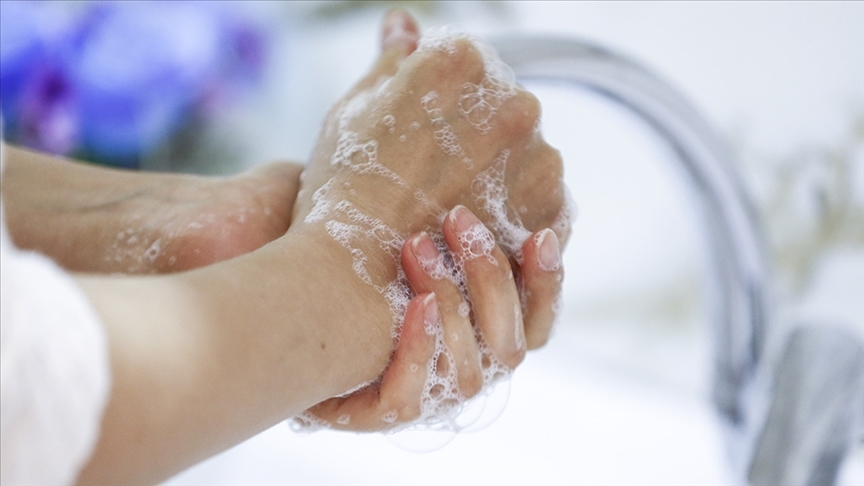How to slow down the 'aging rate' of skin and joints?

Hyaluronic acid is a molecule that has become very popular in recent years, thanks to its prominence in cosmetics. It's also known as the "youth vaccine" because it gives skin a plump and radiant appearance. However, contrary to popular belief, its effects aren't limited to just the skin.
This molecule, which is naturally present in our bodies and has a moisturizing effect, also plays a crucial role in eye and joint health. Therefore, Internal Medicine Specialist Dr. Dilara Palabıyık explained the not-to-be-ignored benefits of hyaluronic acid:

Beneficial for overall health from head to toeDr. Dilara Palabıyık
Hyaluronic acid's moisture-retaining properties help keep areas like muscles, joints, and eyes moist. Other benefits include:
- Provides moisture, plumpness and a healthy appearance to the skin thanks to its water-retaining properties. Reduces the appearance of fine lines.
Hyaluronic acid, also found in connective tissue, accelerates wound healing, supports tissue repair, and reduces infection. Some wound-healing creams may contain hyaluronic acid.
Hyaluronic acid, a component of joint fluid, lubricates joint surfaces. It is used as an injection in the treatment of arthritis.
- It's found in intraocular fluids. Artificial tear drops contain hyaluronic acid. It reduces problems like dryness, stinging, and redness.
- Since hyaluronic acid is thought to have a healing role in gum diseases, some mouthwashes and toothpastes may contain this compound.
It is the body's moisture reservoirHyaluronic acid is a large molecule naturally produced in our bodies. It's found abundantly in skin, joint fluid, and connective tissue. This molecule holds a significant amount of moisture relative to its size and weight, providing moisture, elasticity, and health to the tissues in which it resides.
DRINK PLENTY OF WATERAim to drink at least 8 glasses (about 2 liters) of water a day. Water is vital for maintaining your skin's moisture balance and elasticity. Drinking plenty of water also helps maintain hyaluronic acid levels in the body.
Limit caffeine and alcoholBoth caffeine and alcohol can dehydrate you, so it's recommended that you limit your caffeine and alcohol intake.
Prevents bone lossWith advancing age, the hyaluronic acid and synovial fluid content of the synovial fluid decreases.
This causes the bones to rub together, causing pain and calcification. Hyaluronic acid supplements or injections, under the supervision of a physician, increase this fluid and help protect the bone ends.
In addition, hyaluronic acid helps prevent bone loss by minimizing bone friction by keeping the cartilage tissue on the joint surfaces of the bones moist.
Under appropriate conditions, patients with arthritis can receive hyaluronic acid injections into the knee joint.
It contributes greatly to rejuvenationHyaluronic acid increases skin moisture, reduces wrinkles, and accelerates cell renewal. Combined, these effects result in a more vibrant, healthy, and youthful-looking skin.
Can be preferred for stronger hairIt provides indirect benefits to hair. It moisturizes the scalp, which in turn promotes healthier hair follicles. Hair becomes shinier and hair loss is reduced.
Is it available in supplement form?It is not recommended to use supplements without the advice of a physician, as your doctor may recommend them if necessary, based on your body's needs.
Antiaging Foods The richest source is bone brothBone broth has the highest natural hyaluronic acid content. It's particularly suitable for bone marrow. It's recommended to cook it slowly over low heat for at least 8 hours. Adding apple cider vinegar helps the connective tissue components in the bone absorb more water. Bone broth takes on a gelatinous consistency as it cools. The gelatinous consistency indicates the connective tissue component content.
Supports connective tissueWhen taken with food, hyaluronic acid is broken down into small pieces by the digestive system and absorbed into the body.
However, because it can be affected by stomach acid, the effectiveness of hyaluronic acid taken this way may be somewhat diminished. Despite this, it continues to support connective tissue in the body. After absorption, it is reused in the skin, synovial fluid, eyes, and connective tissue.
In addition, the richness of intestinal flora with healthy bacteria also increases the absorption of hyaluronic acid.
HERE ARE OTHER NATURAL RESOURCES...- Orange-grapefruit-lemon: Citrus fruits, especially orange, grapefruit and lemon, are rich in vitamin C, which supports the body's production of hyaluronic acid.
- Chicken meat: Cartilaginous chicken meat is rich in hyaluronic acid.
- Oily fish: Especially oily fish are rich in hyaluronic acid.
- Blueberries: Contain anthocyanin, a powerful antioxidant. This prevents the breakdown of hyaluronic acid. They are also rich in vitamin C, which supports collagen production. By protecting fibroblast cells, they indirectly contribute to hyaluronic acid production.
- Spinach: Increases hyaluronic acid synthesis due to its magnesium content. Magnesium plays an important role in enzyme activity.
- Almond: Thanks to its magnesium content, it helps with hyaluronic acid synthesis. Thanks to its vitamin E content, it helps prevent hyaluronic acid destruction with its antioxidant effect.
- Onion and garlic: Due to their sulfur content, they support the synthesis of collagen and hyaluronic acid.
- Broccoli: Thanks to the vitamin C it contains, it increases the synthesis of collagen and hyaluronic acid.
SÖZCÜ





